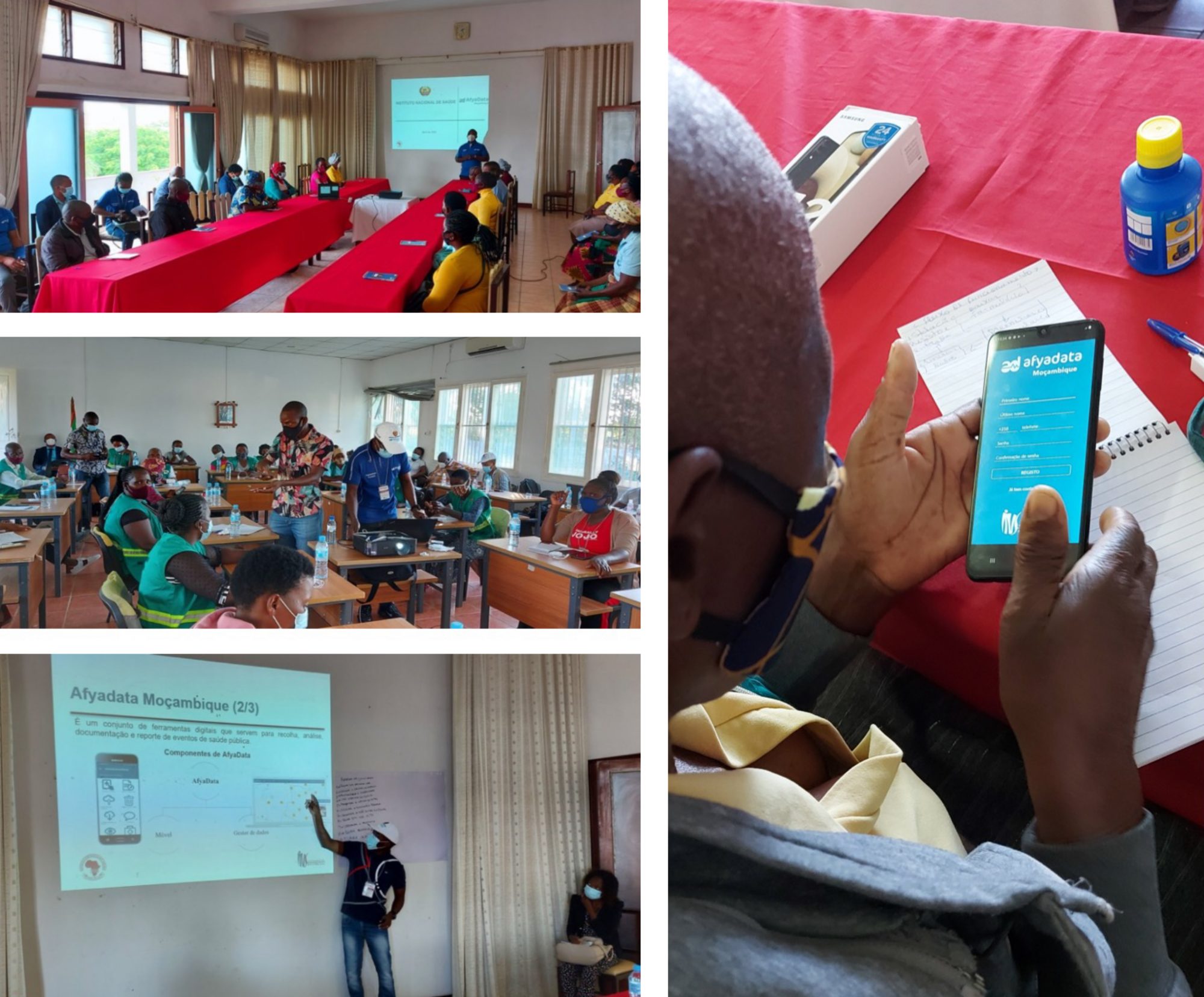SACIDS, in collaboration with the Ministry of Health in Mozambique is capitalizing on its AfyaData, a digital disease surveillance app, to enhance early detection, timely reporting and prompt feedback/response to health-related signals/events, including COVID-19 and other priority diseases in the country
The Directorate of the National Institute of Health (INS) has authorized implementation of AfyaData in the country. Mapping of the strategic country sites and identification of ToTs for the initial deployment of AfyaData. SACIDS team had several meetings with Mozambicans discussing on the modality of implementing AfyaData in Mozambique.

Training of trainers
Training of trainers took place at the National Institute of Health (INS- Instituto Nacional De Saude) aiming at building skills to INS officials (Epidemiologist, Sociologist, Economist, Data manage and IT) to become trainers of community health workers (CHW) at the district level using AfyaData in disease surveillance. The training was conducted from 21st to 22nd April. It was officially opened by Dr Inocencio Chongo (One health coordinator) and AfyaData project focal person to Mozambique.
Dr. Eduardo Samo Gudo, Deputy Director at Instututo Nacional de Saúde Pointed out that due to the terrorist events in Cabo Delgado province, the surveillance team were looking for a tool to help in the early detection of health events from the communities at refugee camps. He suggested the implementation team to explore the opportunity of using AfyaData in such case, as most of the requirements are available in AfyaData.
Training community health workers
Training was conducted in Chokwe district, Gaza province from 23 to 1st May at Chokwe district offices. The training was officiated by the District Director for Health Services,
Dr. Marcelo de Almeida who appreciated the efforts of INS and SACIDS in recognizing the value of community-based surveillance.
26 community health workers and 5 district health officials received training on how to use AfyaData in disease surveillance. The CHW training package included how the data flow for the existing official reporting systems of diseases and events, clinical signs of respiratory diseases, including COVID-19 and protective measures, interview techniques, smartphone and AfyaData usage in disease surveillance.
The CHW were trained on general disease surveillance and the existing structure of reporting, identifications of respiratory infectious clinical signs, including COVID-19, interviews protocols, consent forms and data recording using AfyaData. For every visit, CHW will have two copies of the consent form attached with a barcode. If the patient agreed to be interviewed, CHW would provide the patient with two copies to sign, one copy will remain with the patient and the other by CHW. CHW will scan a barcode on the consent form using AfyaData and continue with the interview until the submission stage. Also, for any rejection to be interviewed, data will be recorded in AfyaData and submitted. 5000 data are expected to be captured during the pilot period. At the end the INS will prepare a report to be presented at the Ministry of Health regarding the performance of AfyaData in community bases disease surveillance.

Field practice
The CHW training also included the field visit practices, aiming to monitor how CHW performs from engagement process, interview, health precautions and recording events in AfyaData and submission. Areas and issues needed to be emphasized more were noted and discussed during field trip feedback and other’s scheduled for the next day.
Mpoki Mwabukusi
SACIDS Foundation for One Health
mpoki.mwabukusi@sacids.org
Inocencio s. Chongo
inocenciosalva@hotmail.com
National Institute of Health (INS)
Osvaldo Frederico Inlamea
osvaldosdc@gmail.com
National Institute of Health (INS)
Plácida Maholela
placida.maholela@gmail.com
National Institute of Health (INS)

This work is licensed under Creative Commons Attribution-NonCommercial-NoDerivatives 4.0 International.


